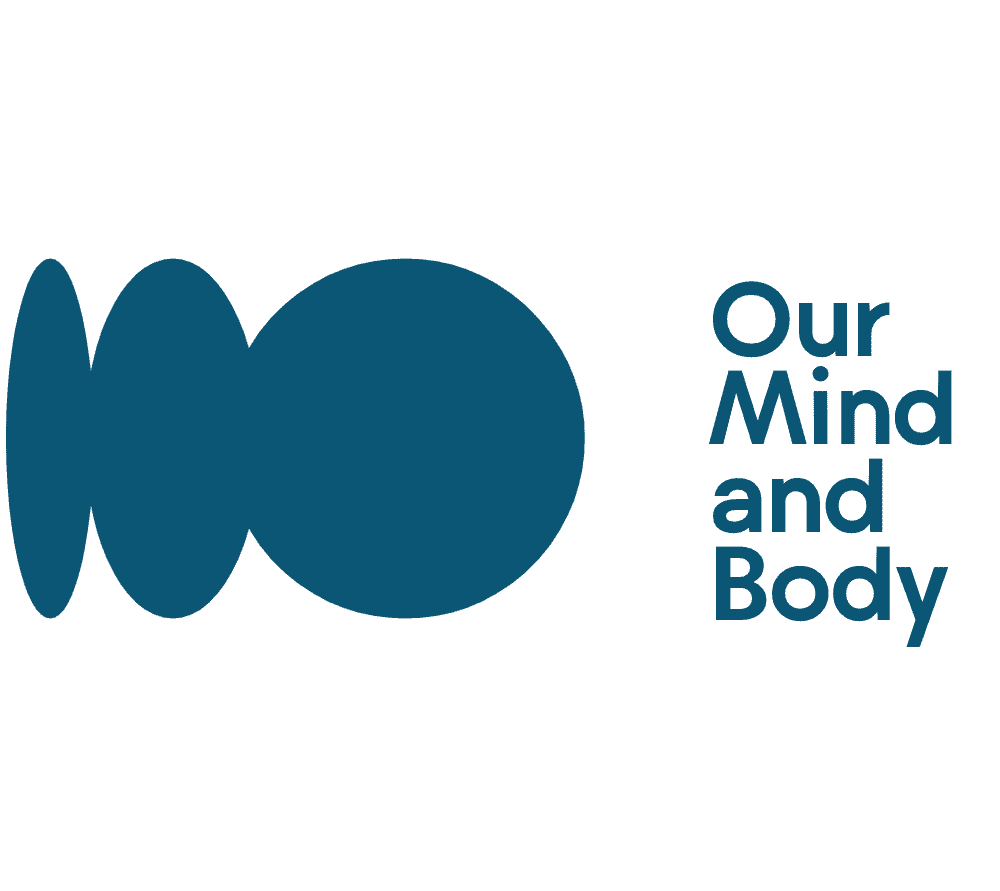Inspiration
Responsible – How This Power Word Can Make You Better

Being accountable is crucial for experiencing fulfillment and happiness in life. It is a powerful concept that has the potential to transform your life and boost your personal development. Accountability encompasses being responsible for your actions, being dependable, efficiently managing your time, self-care, and giving back to society. It is a valuable tool in achieving your goals and becoming a better version of yourself.
Imagine having all the freedom in the world but without any responsibility. Your life would be chaotic, disorganized, and unfulfilling. On the other hand, imagine being responsible for everything in your life – your actions, decisions, relationships, finances – with discipline and dedication. You would have a sense of purpose, direction, and satisfaction that nothing else could give you.
This article will explore how practicing responsibility can transform your personal and professional life for the better by focusing on its benefits and strategies for developing this essential trait.
Key Takeaways
- Responsibility encompasses aspects such as accountability, dependability, time management, self-care, and giving back to society.
- Practicing responsibility in personal and professional life can bring benefits such as improved relationships, self-discipline, and effective handling of challenges.
- Cultivating discipline, self-care, and giving back through volunteer work or charitable donations are essential for maintaining balance in life and making a positive impact on society.
- Making responsibility a habit involves setting clear goals, tracking progress, overcoming obstacles, celebrating achievements, and expressing gratitude.
Understanding the Meaning of Responsibility
You’ll love understanding the meaning of responsibility and how it can make you a better person. Responsibility isn’t just a word; it’s a way of life that requires accountability and embracing consequences.
When you take responsibility for your actions, you acknowledge that your choices have an impact on others around you. It’s about owning up to your mistakes and making amends when necessary.
Understanding accountability means recognizing that every decision we make has a consequence. Whether big or small, our actions have an effect on those around us. We must be willing to accept the outcomes of our decisions and take steps to rectify any negative situations we may have caused. This involves acknowledging our role in the situation and taking action to make things right.
Embracing consequences means being prepared to deal with the results of our actions, whether they are positive or negative. It means taking ownership of our choices and accepting the impact they have on ourselves and others. By embracing consequences, we become more mindful of our behavior and learn from our mistakes, which helps us grow as individuals.
Practicing responsibility in personal life can bring many benefits, including improved relationships with family members, friends, and colleagues. By taking responsibility for our actions, we earn respect from those around us because they know they can rely on us to do what’s right even when no one is looking. Additionally, practicing responsibility helps us develop self-discipline and strengthens our ability to handle challenges effectively.
So start taking charge today – embrace responsibility!
Benefits of Practicing Responsibility in Personal Life
When you take ownership of your actions, it leads to positive changes in your personal life. Practicing responsibility in relationships is one way to experience these benefits. By taking responsibility for our words and actions, we can build trust with those around us.
When we make mistakes, owning up to them and making amends shows that we value the relationship and are committed to its growth. However, practicing responsibility can be challenging at times. It requires us to be honest with ourselves about our shortcomings and make a conscious effort to improve.
One way to overcome these challenges is by setting realistic goals and holding ourselves accountable for achieving them. We can also seek feedback from trusted friends or family members who can help us stay on track.
Overall, the benefits of practicing responsibility in our personal lives are many. By being responsible, we can strengthen our connections with others and cultivate a sense of self-worth that comes from knowing we’re doing the right thing. As I move into discussing the benefits of practicing responsibility in my professional life, I recognize that the same principles apply: taking ownership of my work will lead to positive outcomes both for myself and for those around me who rely on me for their success as well.
Benefits of Practicing Responsibility in Professional Life
By taking ownership of our actions and decisions, we can create a positive ripple effect in our professional lives that not only benefits ourselves but also inspires those around us to strive for excellence.
Practicing responsibility in team collaboration has numerous benefits. When we take responsibility for our mistakes and actively work towards rectifying them, it creates an environment of trust and accountability within the team. This leads to better communication, improved problem-solving skills, and increased productivity.
Responsible leadership skills in the workplace are essential for success. A responsible leader is someone who takes charge of their actions and decisions while keeping the best interests of their team in mind. They lead by example and inspire their team members to do the same. A responsible leader is also open to feedback from their team members and uses it constructively to improve themselves as well as the overall performance of the team.
Incorporating responsibility into our professional lives not only helps us grow as individuals but also contributes towards creating a positive work culture. By practicing responsibility, we become more reliable, trustworthy, and accountable individuals who are valued by our colleagues and superiors alike.
As we move forward into discussing the importance of time management, let’s remember that being responsible with our time is an integral part of being successful in both personal and professional spheres of life.
Importance of Time Management
As a busy professional, I’ve found that time management is an essential skill to master in order to succeed.
Prioritizing tasks based on their level of importance and urgency has allowed me to focus on the most critical aspects of my work.
Meeting deadlines consistently not only ensures timely completion of projects, but also builds trust with colleagues and clients.
By avoiding procrastination and staying organized, I’m able to use my time efficiently and achieve my goals effectively.
Prioritizing Tasks
Prioritizing your tasks can be a game-changer when it comes to being responsible and productive. Task prioritization is the process of deciding which tasks are most important and urgent, and then focusing on those first.
There are many tips and strategies for effective task prioritization. For example, making a to-do list, breaking down larger tasks into smaller ones, setting deadlines for each task, and delegating tasks to others if possible can all be helpful.
Not only does responsible behavior help with productivity, but it also has a positive impact on mental health. When we prioritize our tasks effectively and complete them in a timely manner, we feel accomplished and less stressed. This helps us maintain a better work-life balance by reducing the amount of time we spend worrying about unfinished work or missed deadlines.
In the next section, I’ll discuss how meeting deadlines is another crucial aspect of being responsible in both our personal and professional lives.
Meeting Deadlines
Meeting deadlines is crucial to staying on top of your tasks and avoiding the stress of last-minute rushes. As someone who takes responsibility seriously, I understand that it’s my duty to make sure that I meet all deadlines in a timely manner.
However, sometimes unexpected obstacles can come up and cause delays. In these situations, communication becomes extremely important. It’s essential to communicate with everyone involved in the project about any issues or setbacks so they can adjust their expectations accordingly.
When dealing with unexpected obstacles, it’s important to keep an open line of communication with your colleagues or superiors. This will help you come up with solutions together and ensure that everyone is on the same page. Additionally, it’s vital to have a plan in place for handling unforeseen circumstances so that you can quickly address any issues without jeopardizing the deadline.
By prioritizing communication and being prepared for potential roadblocks, you can avoid unnecessary stress and deliver quality work on time.
To continue being responsible, it’s important to avoid procrastination when working towards deadlines.
Avoiding Procrastination
Don’t let procrastination completely take over your life and ruin all of your hard work by waiting until the very last minute to start on a project. Overcoming procrastination requires discipline, but it’s not impossible.
One of the most effective ways to avoid procrastination is by implementing time management techniques. To overcome procrastination, start by breaking down tasks into smaller, manageable steps. This will make the project seem less daunting and more achievable. Set specific deadlines for each step and hold yourself accountable for meeting them.
Another helpful technique is to prioritize tasks based on their importance and urgency. By focusing on what needs to be done first, you’ll avoid wasting time on less important tasks. With these time management techniques in place, you’ll be able to conquer procrastination and achieve your goals.
Developing a sense of discipline takes practice and effort, but it’s essential if you want to succeed in life.
Developing a Sense of Discipline
By cultivating a strong sense of discipline, I’ve been able to achieve my goals and overcome challenges more easily. Developing accountability and staying focused have been key components in building this discipline. Here are five ways that have helped me develop a stronger sense of discipline:
-
Setting clear goals: Having specific and measurable goals helps me stay focused on what needs to be done.
-
Creating a routine: Establishing a daily routine has helped me build good habits and stay consistent in achieving my goals.
-
Avoiding distractions: Eliminating or minimizing distractions such as social media or television has allowed me to concentrate on the task at hand.
-
Holding myself accountable: Taking responsibility for my actions and setting consequences for not meeting my goals has helped me stay motivated and disciplined.
-
Celebrating small wins: Acknowledging progress along the way, no matter how small, keeps me motivated to keep going.
Developing discipline is not easy, but it’s worth it. By incorporating these strategies into my daily life, I’ve seen significant improvements in achieving my goals. With discipline comes the ability to push through difficult times and make progress towards success.
As I continue to work on developing discipline, I’m also focusing on cultivating a growth mindset. By embracing challenges as opportunities for growth rather than obstacles, I’m able to approach situations with a positive attitude and learn from them.
Cultivating a Growth Mindset
Embracing challenges with a growth mindset is like planting a seed that will eventually blossom into success. It involves seeing obstacles as opportunities to learn and improve continuously. When faced with difficulties, I try not to get discouraged but instead focus on what I can do better next time. This mindset has helped me overcome many obstacles in my personal and professional life.
To cultivate a growth mindset, it’s important to learn from mistakes and use them as stepping stones for future success. Instead of dwelling on failures, I reflect on what went wrong and how I can improve the outcome next time. This approach has allowed me to take risks without fear of failure because even if things don’t go according to plan, I know that there is always room for improvement.
Incorporating self-reflection into my daily routine has been essential in cultivating a growth mindset. By taking time to evaluate my actions and decisions, I am able to identify areas where I can grow and develop further. Embracing challenges, overcoming obstacles, learning from mistakes, and improving continuously are all part of the process towards achieving personal and professional success. Practicing self-care is an integral part of this journey because it allows me to recharge and refocus so that I can continue striving towards my goals with renewed energy and enthusiasm.
Practicing Self-Care
Transition: Now that we’ve discussed the importance of cultivating a growth mindset, let’s shift our focus towards practicing self-care. As someone who strives to constantly improve and develop my skills, I know how easy it can be to become consumed by work and forget about taking care of myself.
Self-care essentials are crucial for maintaining balance in our lives. This includes activities such as exercise, meditation, and spending time with loved ones. It’s important to create healthy habits that support our physical, mental, and emotional well-being.
For me personally, this means setting aside time each day for yoga or going for a walk outside. Creating healthy habits takes discipline and consistency. It’s not always easy to make time for self-care when there are deadlines looming or projects piling up. However, prioritizing our own needs is essential if we want to perform at our best in all areas of life.
By making self-care a daily practice, we can recharge and refocus so that we can show up fully present in everything we do. As I move forward in my journey towards personal growth and development, I recognize the importance of establishing boundaries as another key aspect of responsible living.
By learning how to set limits on my time and energy while still prioritizing self-care, I’m confident that I’ll continue to thrive both personally and professionally.
Establishing Boundaries
Establishing boundaries is essential for my overall well-being and mental health. Saying no to activities or commitments that don’t align with my values or priorities allows me to focus on what truly matters.
Setting limits on my time and energy helps me avoid burnout and maintain a healthy balance between work and personal life.
Saying No
Rejecting requests that don’t align with your values or goals is an essential part of being responsible. Saying no doesn’t mean you’re selfish or unhelpful; it means you’re prioritizing your time, energy, and resources towards what matters most to you.
That being said, saying no can be challenging, especially when you fear disappointing others or facing pushback. To politely decline a request, start by expressing gratitude for the opportunity and acknowledging the value of the person’s proposal. Then, explain why you need to decline and offer an alternative solution if possible.
If someone challenges your decision, stand firm but remain respectful. Remember that setting boundaries is not only about protecting yourself but also about building healthier relationships based on mutual respect and understanding.
By saying no to certain requests and commitments, we free up space in our lives for more meaningful pursuits. But setting limits goes beyond just saying no; it’s about creating a framework for how we want to live our lives and making intentional choices that align with our values and priorities.
Setting Limits
It’s important to know your limits and prioritize your time so that you can live a fulfilling life that aligns with your values and goals. Setting limits is crucial to achieve this balance.
It’s easy to get caught up in the hustle and say yes to every opportunity or request that comes our way, but this can lead to burnout and resentment.
One way to set limits is by delegating tasks. You don’t have to do everything yourself, especially if it doesn’t align with your strengths or priorities. Delegating can not only free up time for more meaningful activities, but also empower others by giving them opportunities for growth and development.
Additionally, saying yes to self-care is another important aspect of setting limits. Taking care of ourselves physically, mentally, and emotionally allows us to show up as our best selves in all areas of our lives. By setting boundaries around self-care activities such as exercise, sleep, or relaxation time, we prioritize our well-being and prevent burnout.
By setting limits through delegation and prioritizing self-care, we create space for the things that truly matter in our lives while avoiding burnout. It’s a win-win situation where we’re able to accomplish more without sacrificing our health or happiness.
Avoiding Burnout
Setting limits is crucial in achieving a balance between work and personal life. However, there are times when even with the limits set, one can still feel overwhelmed and drained. This is where preventing burnout comes into play – building resilience to avoid reaching that point of exhaustion.
Preventing burnout involves recognizing signs of burnout early on and taking action before it becomes too late. Some common symptoms include feeling physically and emotionally exhausted, losing interest in activities once enjoyed, feeling cynical or detached from work and relationships, and experiencing difficulty concentrating or making decisions. It’s important to take these signals seriously and address them promptly by taking time off work if necessary, engaging in stress-reducing activities like exercise or meditation, seeking support from friends or family members, or considering professional counseling services.
By practicing self-care habits regularly and building resilience over time, we can prevent burnout from happening altogether.
As we continue to focus on bettering ourselves through responsible actions like setting limits and preventing burnout, it’s important to also consider ways in which we can contribute positively to our community. Giving back through volunteer work or charitable donations not only helps those in need but also enhances our own sense of purpose and fulfillment.
Let’s explore how giving back can empower us as individuals while making a difference in the world around us.
Giving Back to the Community
As someone who values giving back to the community, I find that volunteering is a great way to support charitable causes and make a difference.
Whether it’s through donating my time, skills, or resources, I believe that we all have the power to positively impact our communities.
Through this subtopic, we’ll explore different ways to get involved and make a meaningful contribution towards creating positive change.
Volunteering
You can make a positive impact in your community by volunteering your time and skills. There are many volunteering opportunities available, ranging from local food banks to environmental organizations.
By getting involved and giving back to the community, you’re not only helping those in need but also improving your own mental health. Studies have shown that volunteering has a positive impact on mental health by reducing stress levels, increasing feelings of happiness and fulfillment, and providing a sense of purpose. It’s also a great way to meet new people who share similar interests and values.
Volunteering is not only beneficial for the community but also for yourself, so why not give it a try?
Volunteering is just one way to support charitable causes; another effective way is by donating money or resources.
Supporting Charitable Causes
Supporting charitable causes can be as simple as donating a small amount of money each month to an organization that aligns with your values and beliefs. Donation drives are often held by these organizations, making it easy for you to contribute towards their cause. You could also consider volunteering your time and skills to help the charity in any way possible.
If you’re unsure about which organization to donate to, it’s important to conduct an impact assessment first. This involves researching the charity’s mission, goals, and outcomes they have achieved so far. This will ensure that your donation goes towards a cause that truly makes a difference.
By supporting charitable causes through donations or volunteer work, we are able to make a positive impact on society and the world around us. It’s important to remember that even the smallest contribution can make a significant difference in someone’s life or towards achieving a greater goal for humanity.
Let’s continue exploring how we can use our power for good in the next section about ‘making a difference.’
Making a Difference
To truly create change and impact the world, it’s important to take action and find ways to make a difference. One way to do this is by actively seeking out opportunities to volunteer in your community or support causes that align with your values. Whether it’s donating money, attending events, or contributing your time and skills, every effort can make a significant impact.
However, it’s also important to measure the effectiveness of your actions. This means tracking the progress of the cause you are supporting and evaluating whether your contributions are making a tangible difference. By doing so, you can ensure that your efforts are truly creating positive change in the world. As I continue to seek out ways to make a difference, I always keep in mind the importance of measuring my impact and continually striving towards greater effectiveness.
Moving forward into the next section about making responsibility a habit, I know that by consistently taking action and measuring my impact, I can continue to grow as an individual who strives for positive change in both my personal life and within society as a whole.
Making Responsibility a Habit
I firmly believe that making responsibility a habit is crucial in achieving personal growth and success.
Setting clear goals is the first step towards taking responsibility for our lives. By tracking our progress, we can identify areas of improvement and make necessary adjustments.
Celebrating achievements, no matter how small they may be, encourages us to keep moving forward and reinforces responsible behavior as a habit.
Setting Goals
You can improve your goal-setting skills by using the SMART method, which has been shown to increase success rates by up to 30%. The SMART method involves setting specific, measurable, achievable, relevant, and time-bound goals. By following these guidelines, you can ensure that your goals are clear and achievable.
Goal setting techniques are an important part of taking responsibility for your life. However, it’s not always easy to achieve our goals. Overcoming obstacles is a crucial skill that will help you stay on track when things get tough.
When faced with challenges or setbacks, it’s important to assess the situation objectively and come up with a plan to overcome them. By doing so, you’ll be better equipped to achieve your goals and take responsibility for your own success.
In the next section about tracking progress, we’ll explore how monitoring your progress can help keep you motivated and focused on achieving your goals.
Tracking Progress
After setting goals, the next step is to track progress. This involves monitoring the actions taken towards achieving those goals and identifying any areas that need improvement.
Improving efficiency, accountability, and ownership in tracking progress is essential to ensure success. To create a culture of responsibility through effective communication and collaboration, it’s crucial to establish clear expectations and deadlines.
Regular check-ins can help keep everyone on track while providing an opportunity for feedback and support. By using tools such as project management software or daily checklists, individuals can stay organized and focused on their tasks.
Additionally, sharing progress updates with colleagues or team members can encourage accountability and foster a sense of community. Foster a sense of community through open communication.
Tracking progress not only helps us achieve our goals but also allows us to celebrate achievements along the way.
- Set clear expectations and deadlines
- Utilize project management software or daily checklists
- Regularly check-in for feedback and support
- Share progress updates with colleagues or team members
- Foster a sense of community through open communication.
Celebrating Achievements
Celebrating achievements is an important aspect of goal-setting as it provides motivation and a sense of accomplishment. When I reach a milestone, whether it’s completing a project or hitting a personal target, taking the time to acknowledge my progress is crucial.
It gives me the boost I need to push forward and continue pursuing my goals. Expressing gratitude during these celebratory moments is also essential. Whether it’s thanking those who supported me along the way or simply acknowledging the hard work that went into reaching this achievement, expressing gratitude helps me maintain perspective and stay grounded.
Celebrating achievements and expressing gratitude are simple yet effective ways to stay motivated and focused on achieving my goals.
Frequently Asked Questions
Can being responsible improve your relationships with others?
Oh boy, let me tell ya how being responsible can improve your relationships with others. It’s like magic, but without the annoying smoke and mirrors.
By building trust through taking responsibility for your actions, you show those around you that they can rely on ya. And who doesn’t wanna be relied upon?
Plus, being responsible improves your communication skills coz it forces ya to think before ya act or speak. No more foot-in-mouth moments!
So yeah, being responsible is pretty nifty if ya wanna have better relationships with others. Trust me, I know from experience.
How can practicing responsibility lead to personal growth and development?
Taking ownership and being accountable for my actions has been instrumental in my personal growth and development. Responsibility has taught me to be a leader in my life, rather than a victim of circumstance.
By accepting responsibility for my mistakes and failures, I’ve learned from them and become more resilient. This mindset also allows me to make better decisions, as I’m aware of the consequences of my choices.
Practicing responsibility has given me a sense of empowerment and control over my life, which has translated into success in both personal and professional settings.
What are some common obstacles people face when trying to be more responsible?
I used to struggle with procrastination and it often prevented me from being responsible. I would put off tasks until the last minute because I didn’t want to face the stress of completing them.
However, I realized that setting realistic expectations for myself was key to overcoming this obstacle. Instead of overwhelming myself with a long to-do list, I started breaking tasks down into smaller, more manageable chunks. This allowed me to feel less pressure and tackle one thing at a time.
By being accountable for my actions and taking responsibility for my own success, I found that I was able to be more productive and ultimately achieve better results in all aspects of my life.
How can responsibility positively impact your mental health and well-being?
Taking on responsibility has been a game-changer for my mental health and well-being. It’s given me an increased sense of purpose, as I know that I’m contributing something valuable to the world.
This feeling of purpose has helped me combat feelings of aimlessness or apathy that can often lead to depression or anxiety. Additionally, by taking responsibility for my actions and choices, I’ve reduced my stress levels.
Instead of feeling like a victim of circumstance, I feel empowered to make changes in my life that’ll benefit me in the long run. Overall, embracing responsibility has been one of the best decisions I’ve ever made for myself and my mental health.
Can being responsible help you achieve long-term goals and success?
Developing responsible habits and understanding the importance of accountability have been crucial in helping me achieve long-term goals and success.
By taking ownership of my actions and decisions, I’m able to stay focused on what truly matters and avoid distractions that could hinder my progress.
Being accountable has also taught me the value of consistency and perseverance, as I know that every small step towards my goals counts.
Overall, being responsible has allowed me to become more disciplined, organized, and motivated in pursuing my aspirations.
Conclusion
So, why is responsibility such an important power word? As I’ve explored in this article, practicing responsibility can have a positive impact on both our personal and professional lives.
From developing discipline and time management skills to establishing boundaries and giving back to the community, there are countless benefits to taking ownership of our actions.
But the real question is: are you ready to take on this challenge? Are you ready to embrace responsibility as a habit and make it a part of your daily life? The power lies in your hands – so why not start today?
By doing so, you’ll not only become a better version of yourself but also inspire those around you to do the same. So go ahead – take that first step towards being more responsible and see how it transforms your life!
Meet Kiran, the guiding light of wisdom behind the empowering content at OurMindAndBody.com. As a talented and compassionate writer, Kiran weaves words with grace and insight, sharing profound knowledge and practical advice to inspire positive transformations in the lives of readers.
With a background in psychology and a deep-rooted passion for well-being, Kiran brings a unique blend of expertise and empathy to her writing. Her journey into the realm of mindfulness, meditation, and yoga began as a personal quest for self-discovery and healing. Having experienced the profound benefits of these practices firsthand, Kiran is committed to empowering others to embark on their own journeys of self-exploration and growth.
Inspiration
Unveiling The Depths Of Spiritual Warfare

Spiritual warfare is a complex battle with various challenges and strategies at different levels. Essentially, this battle is against evil forces led by Satan, whose aim is to shake our faith and hinder our relationship with God.
In this article, we will delve into the depths of spiritual warfare, exploring the various levels of attack, strategies to overcome the devil, and effective ways to fight against spiritual attacks.
By understanding the nature of this battle and equipping ourselves with the right tools, we can navigate this spiritual warfare and align ourselves with God’s will.
Key Takeaways
- Spiritual warfare involves battling against Satan’s forces and can consume individuals who are not properly aligned with God’s purposes.
- There are three levels of spiritual warfare: flesh, devil, and worldly powers, with the highest level being level 3.
- The devil seeks to deceive, tempt, and destroy, but believers can overcome him through prayer, fasting, scripture reading, and maintaining a personal relationship with God.
- Effective strategies to combat the devil and engage in spiritual warfare include establishing a relationship with God through communication and obedience, engaging in activities that please God, and surrounding oneself with positive influences such as uplifting music and spiritual fellowship.
Levels of Spiritual Warfare
I think it’s important to understand the levels of spiritual warfare in order to effectively combat these battles. By recognizing spiritual attacks, we can better equip ourselves to fight back.
The levels of spiritual warfare include the flesh, devil, and worldly powers. The flesh level involves tangible battles that we face in our physical bodies and circumstances. The devil level focuses on the external enemy, Satan, who seeks to deceive and destroy. Lastly, the worldly powers level encompasses attacks on our faith and belief systems by societal influences.
Spiritual armor plays a crucial role in defending against these attacks. To combat these battles, we must arm ourselves with prayer, faith, and the word of God.
By staying vigilant and aware of the different levels of spiritual warfare, we can effectively overcome and align ourselves with God’s will.
Strategies Against the Devil
Establishing a personal relationship with God through communication and obedience can be a powerful strategy to overcome the devil’s temptations and deceptions.
In the midst of spiritual warfare, it is crucial to equip ourselves with spiritual armor to withstand the attacks of the devil.
Prayer, in particular, is a potent weapon that allows us to communicate with God and seek His guidance and strength.
Through prayer, we can overcome the devil’s attempts to deceive and tempt us, as we draw closer to God and align ourselves with His will.
Prayer not only strengthens our relationship with God but also empowers us to resist the devil’s influence.
By regularly engaging in open and honest communication with God, we can equip ourselves with the spiritual armor necessary to overcome the devil’s attacks and stand firm in our faith.
Overcoming Spiritual Attacks
To overcome spiritual attacks, it is important to recognize the signs and seek guidance and strength from God.
Spiritual warfare can manifest in various ways, including behavior changes and unexplained physical symptoms. By being aware of these signs, we can identify when we are under attack and take appropriate action.
Defending against spiritual attacks involves establishing a strong relationship with God through prayer, fasting, and studying the Bible. These practices help us to stay connected to God’s power and truth, enabling us to resist the enemy’s influence.
Additionally, surrounding ourselves with positive influences such as uplifting music and spiritual fellowship can provide protection and support.
It is crucial to remember that spiritual attacks are not limited to believers; non-believers can also be targeted. By recognizing spiritual warfare and actively defending against it, we can overcome evil and align ourselves with God’s will.
Frequently Asked Questions
How can I differentiate between a spiritual attack and a normal life struggle?
Understanding spiritual discernment is crucial in differentiating between a spiritual attack and a normal life struggle. Recognizing signs of spiritual attacks, such as sudden behavior changes or unexplained physical symptoms, can help discern the source of the struggle.
Can spiritual warfare affect my physical health?
Yes, spiritual warfare can have a mental and emotional impact which can in turn affect physical health. However, through engaging in spiritual warfare, healing can occur on all levels, including physical well-being.
Is it possible to unknowingly invite spiritual attacks into my life?
Yes, it is possible to unknowingly invite spiritual attacks into my life. Recognizing spiritual attacks involves being aware of signs such as behavior changes and unexplained physical symptoms. It is important to protect oneself through prayer and positive influences.
Are there specific prayers or rituals that can protect me from spiritual attacks?
Prayer techniques and spiritual cleansing practices can provide protection from spiritual attacks. By seeking God’s guidance, regularly praying, and engaging in rituals such as smudging or anointing, I can create a spiritual shield against negative forces.
Can spiritual warfare affect my relationships with other people?
Spiritual warfare can impact my relationships by affecting my emotional well-being. Forgiveness plays a crucial role, as it allows for healing and restoration. It is important to address the spiritual battles within ourselves to maintain healthy connections with others.
Conclusion
In conclusion, spiritual warfare is a complex battle that occurs on multiple levels. It involves attacks on faith and belief systems, with the ultimate goal of undermining humanity’s relationship with God. This battle includes the flesh, the devil, and worldly powers.
However, individuals can overcome the devil’s tactics by establishing a personal relationship with God and engaging in spiritual practices. These practices include prayer, fasting, and studying the Bible.
Some may argue that spiritual warfare is subjective and lacks tangible evidence. However, it is important to remember that the battle against evil is not always visible. Its effects can be felt through behavior changes and unexplained physical symptoms.
To effectively fight against spiritual attacks, individuals must actively seek God’s guidance and surround themselves with positive influences. By doing so, they can align themselves with God’s will and overcome the challenges of spiritual warfare.
Meet Kalinda, the passionate and visionary Editor-in-Chief of OurMindAndBody.com. Kalinda is a beacon of light in the realm of holistic well-being, and her mission is to positively impact the lives of others by inspiring them to embrace a healthier and more fulfilling lifestyle.
With a deep-rooted love for meditation, yoga, and spirituality, Kalinda’s journey toward self-discovery and personal growth started at a young age. She found solace and strength in these practices, which not only helped her cope with the challenges of life but also provided her with a profound sense of purpose. Eager to share the transformative power of these ancient disciplines, Kalinda embarked on a path to spread awareness and understanding.
Inspiration
The Mighty Gamabunta: Jiraiya’s Spiritual Beast

In the Naruto series, Gamabunta is known as Jiraiya’s legendary mystical creature and spiritual companion, showing impressive strength. With his ability to change shape, summon smaller toads, and utilize natural energy, Gamabunta proves to be a valuable ally to Jiraiya.
Together, they form an unstoppable team, communicating telepathically and coordinating their attacks in battle.
In this article, we will delve into the description, abilities, various names, and the first appearance of the mighty Gamabunta, shedding light on his significance in the Naruto universe.
Key Takeaways
- Gamabunta is Jiraiya’s mystical animal companion, a giant toad from Mount Myoboku.
- Gamabunta provides strategic support in combat, including transportation and close-range combat.
- Gamabunta has unique abilities such as shape-shifting, summoning smaller toads, and absorbing natural energy.
- The most commonly accepted name for Jiraiya’s spiritual beast is Gamabunta.
Description and Abilities
Gamabunta, Jiraiya’s spiritual beast, is a giant toad with incredible abilities. These abilities include shape-shifting, summoning smaller toads, and absorbing natural energy. Gamabunta plays a crucial role in Jiraiya’s training and development as a shinobi.
With Gamabunta’s strategic support and formidable combat skills, Jiraiya is able to enhance his combat capabilities and transportation. The strong bond between Jiraiya and Gamabunta is evident in their telepathic communication, which increases coordination and effectiveness in battle.
Furthermore, Gamabunta’s significance extends beyond Jiraiya to Naruto. As a summoning animal for both Jiraiya and Naruto, Gamabunta has a profound impact on their growth as shinobi. Through their encounters and battles together, Gamabunta provides guidance and support to Naruto, helping him develop his skills and overcome challenges.
This relationship between Naruto and Gamabunta showcases the importance of mentorship and the influence of spiritual beasts in the Naruto universe.
Various Names
Toad Boss, also known as the Great Toad Sage, is a prominent character in the Naruto series and serves as my loyal companion throughout my journeys.
Gamabunta holds great cultural significance in Japanese folklore, as it is based on the mythical creature known as the toad.
In the Naruto universe, Gamabunta plays a crucial role in shaping my character development. As a summoning animal, Gamabunta’s immense power and wisdom have guided me through countless battles and taught me important life lessons.
Our telepathic communication enhances our coordination, allowing us to strategize effectively in combat.
Gamabunta’s presence also showcases my growth and maturity as a ninja, as I gain the respect and trust of such a formidable and revered beast.
Together, we have faced many challenges, and our bond continues to strengthen as we overcome obstacles and protect the ninja world.
Summoning and First Appearance
Summoning my loyal companion was a pivotal moment in my battle against Orochimaru. An incredible force emerged to aid me – the Summoning Technique, a jutsu I had mastered. It allowed me to summon Gamabunta, the mighty toad, to the battlefield.
As he appeared in a swirl of smoke, Gamabunta’s massive size and power commanded attention. His first appearance showcased his formidable abilities. He unleashed a devastating Giant Toad Body Slam, crushing our enemies with his sheer strength.
With Gamabunta by my side, I felt invincible. His impressive water-style jutsu and unrivaled combat skills were at my disposal. The significance of Gamabunta’s first appearance in Naruto cannot be understated. It marked the beginning of a partnership that would prove crucial in numerous battles to come.
Frequently Asked Questions
How did Jiraiya first form a bond with Gamabunta?
Jiraiya formed a bond with Gamabunta through the Summoning Technique, where he summoned the giant toad to aid him in battle. Their bond is significant as Gamabunta provides strategic support and can understand human language, allowing for better coordination with other summoning animals.
Can Gamabunta communicate with other animals besides Jiraiya?
No, Gamabunta cannot communicate with other animals besides Jiraiya. His ability to communicate only extends to telepathic communication with Jiraiya, which enhances their coordination in battle but does not involve other animals.
What is the origin of Gamabunta’s name?
The name Gamabunta holds significant meaning in Japanese folklore. It symbolizes the connection between Jiraiya’s ninja techniques and the wisdom of the toad sage. Gamabunta also acts as a mentor and protector for Jiraiya, guiding him in his early days as a ninja.
Are there any other summoning animals that Jiraiya can call upon besides Gamabunta and Gamakichi?
No, there are no other summoning animals that Jiraiya can call upon besides Gamabunta and Gamakichi. Jiraiya’s summoning technique is unique and powerful, placing him among the top summoners in the Naruto series.
Has Gamabunta ever been defeated in battle?
In the world of Naruto, Gamabunta is a force to be reckoned with. Compared to other summoning animals, he is incredibly powerful. However, he does have his weaknesses. While he can defeat many spiritual beasts in battle, he is primarily limited to fighting alongside Jiraiya.
Conclusion
In conclusion, Gamabunta is a formidable and powerful ally to Jiraiya in the Naruto series. With his shape-shifting abilities, summoning smaller toads, and absorbing natural energy, Gamabunta proves to be a formidable force in combat.
His telepathic communication with Jiraiya enhances their coordination and makes them a nearly invincible duo. Known by various names such as Toad Boss and Great Toad Sage, Gamabunta is considered one of the strongest summoning animals in the Naruto universe.
An interesting statistic to note is that Gamabunta made his first appearance during the battle against Orochimaru using the Summoning Technique, showcasing his significance in Jiraiya’s journey.
Meet Kalinda, the passionate and visionary Editor-in-Chief of OurMindAndBody.com. Kalinda is a beacon of light in the realm of holistic well-being, and her mission is to positively impact the lives of others by inspiring them to embrace a healthier and more fulfilling lifestyle.
With a deep-rooted love for meditation, yoga, and spirituality, Kalinda’s journey toward self-discovery and personal growth started at a young age. She found solace and strength in these practices, which not only helped her cope with the challenges of life but also provided her with a profound sense of purpose. Eager to share the transformative power of these ancient disciplines, Kalinda embarked on a path to spread awareness and understanding.
Inspiration
Unveiling Pastor Jerry Eze’s Spiritual Father: A Catalyst For Growth

In the realm of spiritual growth and progress, the revelation of Pastor Jerry Eze’s mentor marks a pivotal moment in his journey.
This divine connection with Pastor Enoch Adeboye, a respected and revered figure, has become a cornerstone of Pastor Eze’s development.
Their relationship is a testament to the power of seeking guidance, honor, and mentorship in ministry.
As we delve into their profound bond, we will witness the transformative impact that a spiritual father can have on one’s ministry, vision, and spiritual walk.
Key Takeaways
- Pastor Jerry Eze’s spiritual father has had a cordial and healthy relationship with him, providing mutual respect and guidance that has influenced Pastor Jerry Eze’s ministry.
- Seeking guidance and mentorship in ministry is essential, as demonstrated by Pastor Jerry Eze’s own example, and can have a positive impact on one’s spiritual journey and ministry.
- Pastor Jerry Eze has multiple spiritual mentors in addition to his primary spiritual father, which is a common practice among ministers, and these mentors provide different perspectives and insights that enrich his spiritual journey.
- Pastor Jerry Eze’s spiritual father has had a significant positive impact on his ministry, influencing his mission to spread the gospel, shaping his ministry vision, providing guidance in ministry strategies, and supporting him in facing challenges.
Who is Pastor Jerry Eze’s Spiritual Father?
My spiritual father, Pastor Jerry Eze, has been greatly influenced and guided by Pastor Enoch Adeboye. This has resulted in a strong and healthy relationship filled with mutual respect and guidance.
Pastor Adeboye, as a spiritual father, holds significant importance in Pastor Jerry Eze’s life and ministry. He serves as a source of spiritual covering, offering guidance and direction in ministry decisions.
Through their relationship, Pastor Jerry Eze finds support and encouragement during times of challenges. Pastor Adeboye acts as a catalyst for growth and fruitfulness.
This bond of mentorship provides a solid foundation for Pastor Jerry Eze’s spiritual journey. It empowers him to walk confidently in his calling.
The significance of having a spiritual father like Pastor Adeboye cannot be understated. He is a role model and example, offering wisdom and experience that shape and strengthen Pastor Jerry Eze’s ministry.
Importance of Seeking Guidance
Seeking guidance from experienced leaders is crucial in ministry because mentorship and guidance play a vital role. As ministers, we can benefit greatly from the wisdom and guidance of those who have walked the path before us. These experienced leaders have valuable insights to share, having gone through similar experiences. They can nurture our spiritual growth through their relationships with us.
By seeking guidance, we open ourselves up to the wisdom and experience of others. We can learn from their successes and failures, gaining new perspectives that can shape our ministry. Mentorship provides us with accountability and direction, empowering us to sharpen our skills and talents. This helps us build strong foundations for effective service.
It’s important to understand that seeking guidance is not a sign of weakness. Instead, it shows humility and a desire to grow. So, let’s embrace the opportunities to learn from experienced leaders and nurture our spiritual growth through meaningful relationships.
Impact on Pastor Jerry Eze’s Ministry
Through my relationship with my spiritual father, Pastor Enoch Adeboye, I have been guided and supported in shaping my ministry vision and strategies. His influence on my mission to spread the gospel has been profound. His wisdom and guidance have strengthened my faith and commitment to serving God’s people.
Having Pastor Adeboye as a spiritual father has provided me with a solid foundation and a source of encouragement in the face of challenges. His support has been unwavering, and his guidance has been instrumental in helping me navigate the complexities of ministry.
I am forever grateful for his mentorship and the impact he has had on my life and ministry. His influence has not only shaped my mission but also deepened my relationship with God. Through his guidance, my faith has grown stronger, and I am more equipped to fulfill the calling that God has placed on my life.
Lessons from their Relationship
I have learned valuable lessons from my relationship with Pastor Enoch Adeboye. One important lesson is the importance of seeking guidance from experienced leaders and embracing mentorship opportunities. Through our connection, I have discovered that growth in ministry is greatly accelerated when we humble ourselves and learn from the wisdom of others.
My spiritual father has taught me the significance of respecting and honoring those who have gone before us, paving the way for our own journey. He has shown me the power of accountability and the nurturing of spiritual gifts and talents. Through his guidance, I have gained a deeper understanding of my purpose and the mission I have been called to fulfill.
The lessons I have learned through this relationship have not only shaped my ministry, but have also transformed my life. Growth through mentorship is a beautiful and essential aspect of every minister’s journey, and I am grateful for the impartation of wisdom and experience that I have received.
Role of Spiritual Fathers in Ministry
Having a mentor in ministry is like having a guiding light that illuminates the path and empowers us to fulfill our purpose.
Spiritual fathers play a crucial role in nurturing leaders and imparting wisdom and experience. They provide guidance and direction, shaping the ministry vision and mission. They impart valuable insights and perspectives that accelerate spiritual growth and sharpen skills and talents.
Spiritual fathers support and encourage ministers, strengthening their spiritual foundations and empowering them for effective service. They offer accountability and guidance, nurturing spiritual gifts and talents. They provide protection and covering, and their wisdom and experience become accessible resources for ministers.
The presence of a spiritual father is a catalyst for growth, helping us navigate through challenges and inspiring us to walk in faith and fruitfulness.
Frequently Asked Questions
How did Pastor Jerry Eze establish a relationship with his spiritual father?
Establishing a connection with my spiritual father was a divine appointment. Through seeking guidance from experienced leaders and embracing mentorship, I nurtured the mentorship, learning from his wisdom and experiencing spiritual growth.
What specific guidance and mentorship has Pastor Jerry Eze received from his spiritual father?
Oh, let me tell you about the guidance and mentorship I’ve received from my spiritual father. His wisdom and experience have truly been a catalyst for my growth. He has transformed my ministry and shaped my vision.
How has Pastor Jerry Eze’s spiritual father influenced his ministry strategies and mission?
Pastor Jerry Eze’s spiritual father has been a catalyst for growth in my ministry. His influence on my ministry strategies and mission has been invaluable, guiding me in spreading the gospel, shaping my vision, and strengthening my faith and commitment.
Are there any challenges that Pastor Jerry Eze has faced in his ministry that his spiritual father has helped him overcome?
In my ministry, challenges have come my way, but my spiritual father’s mentorship has been a guiding light. Like a lighthouse in stormy waters, he has helped me navigate through difficulties and emerge stronger than before.
Can you provide any specific examples of how Pastor Jerry Eze’s spiritual father has shaped his spiritual growth and development?
Pastor Jerry Eze’s spiritual father has had a transformational impact on his spiritual growth and development. Through their guidance and mentorship, he has gained spiritual insights that have shaped his ministry and mission.
Conclusion
In my journey as a minister, I have discovered the immense value of having a spiritual father. Pastor Enoch Adeboye has been that guiding light for me, a catalyst for growth in my ministry.
Through his wisdom, guidance, and support, I have been able to navigate challenges, sharpen my skills, and stay focused on my mission to spread the gospel.
As the adage goes, ‘A wise man learns from his mistakes, but a wiser man learns from the mistakes of others.’ The role of a spiritual father is to impart wisdom and help us avoid unnecessary mistakes.
Their presence in our lives brings accountability, protection, and a deepening of our spiritual walk. Let us all seek out mentors and spiritual fathers who can help us grow and flourish in our faith.
Meet Kalinda, the passionate and visionary Editor-in-Chief of OurMindAndBody.com. Kalinda is a beacon of light in the realm of holistic well-being, and her mission is to positively impact the lives of others by inspiring them to embrace a healthier and more fulfilling lifestyle.
With a deep-rooted love for meditation, yoga, and spirituality, Kalinda’s journey toward self-discovery and personal growth started at a young age. She found solace and strength in these practices, which not only helped her cope with the challenges of life but also provided her with a profound sense of purpose. Eager to share the transformative power of these ancient disciplines, Kalinda embarked on a path to spread awareness and understanding.
-

 Personal Growth2 months ago
Personal Growth2 months agoThe Power Of Kindness: Cultivating Happiness, Connection, And Personal Growth
-

 Meditation1 day ago
Meditation1 day agoUnderstanding Spiritual Attacks: Types, Signs, And Protection
-

 Aura1 week ago
Aura1 week agoUnderstanding The Grey Aura: Balance, Neutrality, And Personal Growth
-

 Spirituality3 months ago
Spirituality3 months agoThe Power Of Spiritual Connection: Definition, Importance, And Ways To Achieve
-

 Spirituality2 months ago
Spirituality2 months agoStarting Your Spiritual Journey: Self-Reflection, Growth, And Connection
-

 Spirituality3 months ago
Spirituality3 months agoConnecting Spirituality And Daily Life: Embracing Universal Values
-

 Spirituality3 months ago
Spirituality3 months agoThe Mystical Realms: Exploring Spiritual Dimensions
-

 Meditation3 weeks ago
Meditation3 weeks agoThe Symbolic Significance Of Sand Dollar: Spiritual Meanings And Cultural Connections




















